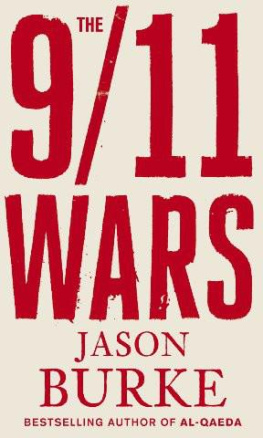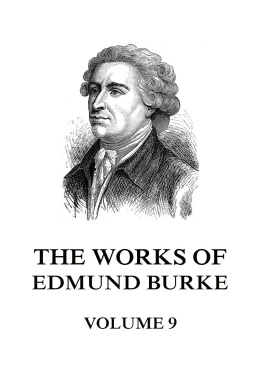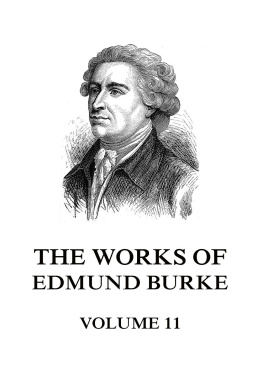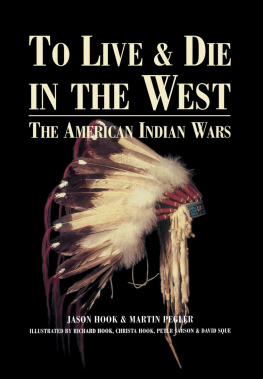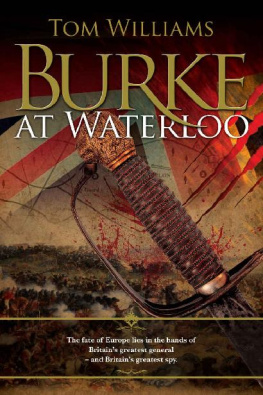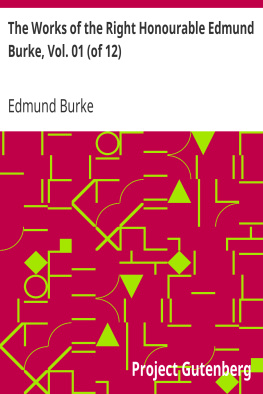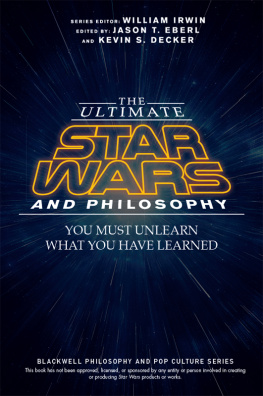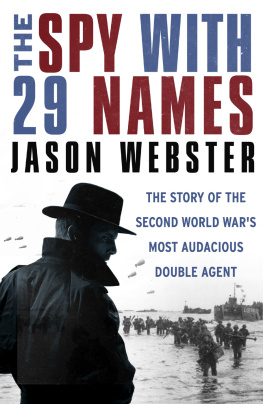Jason Burke - The 9 11 Wars
Here you can read online Jason Burke - The 9 11 Wars full text of the book (entire story) in english for free. Download pdf and epub, get meaning, cover and reviews about this ebook. year: 2011, publisher: Allen Lane, genre: Politics. Description of the work, (preface) as well as reviews are available. Best literature library LitArk.com created for fans of good reading and offers a wide selection of genres:
Romance novel
Science fiction
Adventure
Detective
Science
History
Home and family
Prose
Art
Politics
Computer
Non-fiction
Religion
Business
Children
Humor
Choose a favorite category and find really read worthwhile books. Enjoy immersion in the world of imagination, feel the emotions of the characters or learn something new for yourself, make an fascinating discovery.
- Book:The 9 11 Wars
- Author:
- Publisher:Allen Lane
- Genre:
- Year:2011
- Rating:5 / 5
- Favourites:Add to favourites
- Your mark:
- 100
- 1
- 2
- 3
- 4
- 5
The 9 11 Wars: summary, description and annotation
We offer to read an annotation, description, summary or preface (depends on what the author of the book "The 9 11 Wars" wrote himself). If you haven't found the necessary information about the book — write in the comments, we will try to find it.
The 9 11 Wars — read online for free the complete book (whole text) full work
Below is the text of the book, divided by pages. System saving the place of the last page read, allows you to conveniently read the book "The 9 11 Wars" online for free, without having to search again every time where you left off. Put a bookmark, and you can go to the page where you finished reading at any time.
Font size:
Interval:
Bookmark:


ALLEN LANE
an imprint of
PENGUIN BOOKS
PART ONE
Afghanistan, America, Al-Qaeda: 20013
PART TWO
Escalation: 20034
PART THREE
Europe, the Darkest Days: 20056
PART FOUR
Iraq and the Turning: 20057
PART FIVE
Afghanistan, Pakistan and Al-Qaeda: 2008
PART SIX
Endgames: 200911
To Anne-Sophie and to Victor
. Bamiyan, Afghanistan, 2001
. George W. Bush
. Osama bin Laden
. Ruins of the World Trade Center, September 11, 2001
. US airstrikes against Taliban at Tora Bora, December 2001
. Bali bomb aftermath, October 2002
. London anti-war march, February 2003
. The Iraq War toppling a Saddam Hussein statue
. An Iraqi caught in a US raid
. Shia followers of Moqtada al-Sadr, demonstrating
. Murals on a Tehran street
. Abu Musab al-Zarqawi
. The Madrid train bombing, March 2004
. The 7/7 attacks in London, 2005
. Protests in Gaza, 2005
. Burning bus in Toulouse, 2005
. Jordanian suicide bomber, November 2005
. Vigil in Amman, 2005
. Blairs final visit to troops in Iraq, May 2007
. Blast walls being manufactured in Kabul
. Benazir Bhutto with Hamid Karzai
. The Taj Hotel, Mumbai, on fire, November 2008
. British troops in an Afghan poppyfield
. Afghan National Army recruits, Kabul
. Pakistani troops in Bajaur
. Captain Jos Vasquez, Logar, 2009
. Protestors in Tahrir Square, Cairo, 2011
. Anti-Mubarak demonstrators praying over an Egyptian flag
Endpages: Taliban marching through a village (Ghaith Abdul-Ahad / Guardian)
All images reproduced with the permission of Corbis except for , copyright Jason Burke.









If you had looked down through binoculars on to the battered runway of Bagram in the summer of 1998 from frontline Taliban positions on the heights overlooking the Shomali plains, 30 miles north of Kabul, you would have seen little that indicated the role the old Soviet-built airbase could possibly play over the coming years. Through the dust and haze, you would have made out a cluster of ruined buildings surrounded by broad zones of overgrown land strewn with rusting metal stakes, a single battered jeep and no actual aircraft at all on the scarred strip of concrete shimmering in the Afghan sun. The group of scruffy Taliban fighters in filthy clothes who manned the makeshift trenches on the heights would probably have served grapes and tea to you as they did to the rare reporters who wandered up to the frontline in the dead years when no one was interested very much in an intractable and incomprehensible civil war in a far-off land. Occasionally, the fighters fired a rusty artillery piece in the general direction of the airstrip and of their enemies, usually hitting neither.
If you had come back four years later, say in the spring of 2002, you would have seen a startling difference. With the Taliban apparently defeated and dispersed, a bright new era for Afghanistan seemed to be dawning. The once-ruined airstrip down on the plains had become the fulcrum of a build-up of American and other international forces in the country that would continue inexorably over the next years. The bulldozers, the tents going up in the sand and the jets and helicopters lined up in serried ranks on the newly surfaced runway gave a sense that something extraordinary was happening, something of genuine historical importance. The only problem was that the exact nature of its importance was still very unclear. Now, many years on, though much inevitably remains obscured by the immediacy of events, something of that nature has become clearer. The form and the flow of events are beginning to emerge from the chaos of war. This book is an attempt to describe them and through describing them to make sense of them. Bagram is now a small town of around 10,000 people, with its own shopping centres, gyms, evening classes, pizza parlour, Burger King, multi-denominational places of worship and mess halls all protected by treble rows of razor wire and electrified fences. The Taliban are in the hills around, though not yet back in their former positions from where they fired their poorly aimed shells and shared their tea and grapes.
As this book is rooted in many years of ground reporting, it has a different perspective from many of the works written about the events of the years since the attacks of September 11, 2001. Its focus is not the decisions taken in Western capitals but the effects of those decisions. Its aim is to suggest a grubby view from below, rather than a lofty view from above. It is primarily about people rather than about power, particularly people for whom life has changed in ways that no one could have predicted a decade ago. Occasionally these changes have been for the better; sometimes it is still too early to tell what they will bring; often these changes have been, savagely and brutally, for the worse. Sometimes these individuals and communities are passive victims. Often they are actors. Either way, they are not those whose decisions and motivations dominate many accounts. It is out of this intricate web of individuals, communities and events, however, that the story of the conflicts which we have watched, been touched by, even participated in directly or indirectly, is inevitably woven.
This account does not pretend to be objective. Though one aim of the book is to provide a historical record, it does not pretend to be comprehensive either. Such a work, even if practically realizable, would probably be unreadable. Too much has happened in too many places to too many people in too complex a way for it to be compressed and explained even in some 500 pages. The path this narrative takes is thus not necessarily the most direct or the most obvious. The places it visits are not always the most central. In journalism, analysis and academia there is a natural trend to the general, the global and the aggregated. The complex and often messy reality of history as it happens is reduced to single explanations or overarching theories. Though without synthesis nothing is comprehensible, there is a risk that, in reducing the complexity to find an answer, that answer is wrong. The devil is very often in the detail. Much of this book is devoted to exploring this detail.
Next pageFont size:
Interval:
Bookmark:
Similar books «The 9 11 Wars»
Look at similar books to The 9 11 Wars. We have selected literature similar in name and meaning in the hope of providing readers with more options to find new, interesting, not yet read works.
Discussion, reviews of the book The 9 11 Wars and just readers' own opinions. Leave your comments, write what you think about the work, its meaning or the main characters. Specify what exactly you liked and what you didn't like, and why you think so.

